Olympus T-100 12MP Digital Camera with 3x Optical Zoom and 2.4 inch LCD (Blue)
- 12 Megapixels
- SD Compatible
- AF Tracking
- Creative Art Filters
- Lithium-Ion Battery
OLYMPUS 227465 12.0 Megapixel T-100 Digital Camera (Blue)
List Price: $ 89.99
Price: $ 89.99
Also Recommended:
 Sandisk 4GB Secure Digital SD HC Memory Card (SDSDB-4096, BULK, No Reader)
Sandisk 4GB Secure Digital SD HC Memory Card (SDSDB-4096, BULK, No Reader)e SD High Capacity (SDHC) 4GB flash card is SanDisk’s newest format and capacity SD card. SanDisk cards give you plenty of room to…
 Polaroid CIA-1237RC 12MP CCD Digital Camera with 2.7-Inch LCD Display (Red)
Polaroid CIA-1237RC 12MP CCD Digital Camera with 2.7-Inch LCD Display (Red)Polaroid–12.0 Megapixel Digital Camera with 2.7″ LCD Display–Red…
 Nikon COOLPIX L24 14 MP Digital Camera with 3.6x NIKKOR Optical Zoom Lens and 3-Inch LCD (Silver)
Nikon COOLPIX L24 14 MP Digital Camera with 3.6x NIKKOR Optical Zoom Lens and 3-Inch LCD (Silver)The Nikon Coolpix L24 Digital Camera features a 14.0 Megapixel resolution, 3.6x Zoom-Nikkor glass lens, plus several imaging inn…


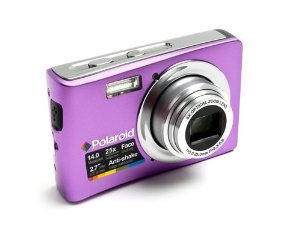
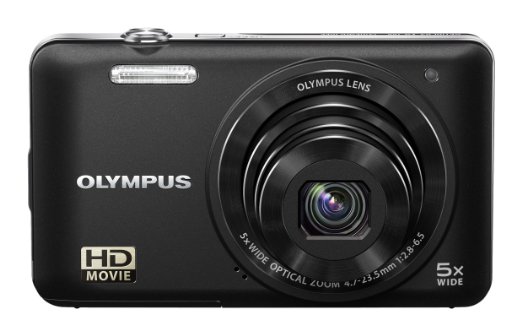
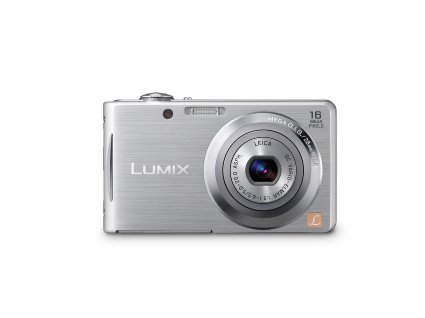
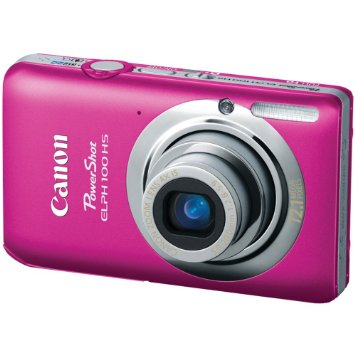
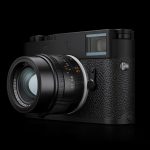
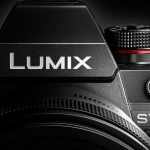
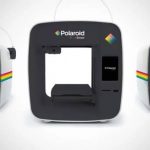





Pros and Cons Make It Difficult to Give a Star-rating,
I wanted a small point-and-shoot camera that I could easily stash in my purse for quick snapshots, and I settled on the Olympus T-100 because of price and my outstanding experience with an Olympus Stylus. I expected a no-frills camera with good optics and ease-of-use; I was looking for value and small size. Although I got what I expected — and for that the T-100 deserves a five-star rating–the camera has other limitations and flaws that consumers should weigh against the cost and the competition. Note: all the 12MP T-100s — red, blue, black, and silver– are the same except for the body color.
Pros: sharp 12 MP pictures in an inexpensive camera; rechargeable lithium battery (which some people may view as a con); a lens cover that is recessed when closed so that does not open easily if you accidentally brush against it; built-in flash that can be set to go off either automatically or only on demand; a sizable LCD screen for composing and viewing photos; the ability to focus on an object, then compose the photograph with it no longer in the center (shutter button halfway down before snapping); menu functions that actually work — self-timer, macro, portrait, landscape, sports, etc. — 21 in all; VGA movie mode to shoot brief videos; SDHC memory card-compatible (Olympus used to have their own XD card format); image stabilization; 3x zoom; ability to zoom in and out while shooting video; battery can be charged using either a regular outlet or a powered USB port; adjustable compression and picture quality settings.
Cons: the housing is mostly plastic, making it feel only one step up from a disposable camera; no memory card included, not even one that will hold a few photos; battery must charge inside camera, making it difficult to prepare extra batteries for a trip; battery does not arrive charged, as many companies are doing today; with few outside buttons, most features need to be activated through the on-screen menu, making it cumbersome to switch from one to another; a somewhat thick body with rectangular corners on one side which makes it awkward to slip into a pocket; a user manual and software on CD that is only usable on a Windows machine; it takes a while to figure out the menu items.
The camera comes with a lithium battery, a wrist strap; a charger with USB cable; and a software/manual disc that works only on Windows machines. If you order this, you should buy at the same time an SDHC card such as Transcend 8 GB Class 6 SDHC Flash Memory Card TS8GSDHC6. This camera has been marketed as ideal for teenagers, primarily because of the cost but also because of the ease of use. Of course, it also means that adults might be disappointed with its construction. It is definitely not as high-tech/cool-looking as the other small point-and-shoots in the Nikon and Canon lines. I’d give it 4 stars for the photographic quality, 3 stars for aesthetics and housing; 5 stars for overall value.
— Debbie Lee Wesselmann
Was this review helpful to you?

|Pros and Cons Make It Difficult to Give a Star-rating,
I wanted a small point-and-shoot camera that I could easily stash in my purse for quick snapshots, and I settled on the Olympus T-100 because of price and my outstanding experience with an Olympus Stylus. I expected a no-frills camera with good optics and ease-of-use; I was looking for value and small size. Although I got what I expected — and for that the T-100 deserves a five-star rating–the camera has other limitations and flaws that consumers should weigh against the cost and the competition. For many, this will be ideal in the price range, but some will want to look at other brands.
Pros: sharp 12 MP pictures in an inexpensive camera; rechargeable lithium battery (which some people may view as a con); a lens cover that is recessed when closed so that does not open easily if you accidentally brush against it; built-in flash that can be set to go off either automatically or only on demand; a sizable LCD screen for composing and viewing photos; the ability to focus on an object, then compose the photograph with it no longer in the center (shutter button halfway down before snapping); menu functions that actually work — self-timer, macro, portrait, landscape, sports, etc. — 21 in all; VGA movie mode to shoot brief videos; SDHC memory card-compatible (Olympus used to have their own XD card format); image stabilization; 3x zoom; ability to zoom in and out while shooting video; battery can be charged using either a regular outlet or a powered USB port; adjustable compression and picture quality settings.
Cons: the housing is mostly plastic, making it feel only one step up from a disposable camera; no memory card included; battery must charge inside camera, making it difficult to prepare extra batteries for a trip; battery does not arrive charged, so you’ll have to wait for a few hours before you can try it out; with few outside buttons, most features need to be activated through the on-screen menu, making it cumbersome to switch from one to another; a somewhat thick body with rectangular corners on one side which makes it awkward to slip into a pocket; a user manual and software on CD that is only usable on a Windows machine; it takes a while to figure out the menu items.
The camera comes with a lithium battery, a wrist strap; a charger with USB cable; and a software/manual disc that works only with Windows machines, no mention of which versions. If you order this camera, you will also want to buy an SDHC card such as Transcend 8 GB Class 6 SDHC Flash Memory Card TS8GSDHC6. This camera has been marketed as ideal for teenagers, primarily because of the cost but also because of the ease of use. Of course, it also means that adults might be disappointed with its construction. It is definitely not as high-tech/cool-looking as the other small point-and-shoots in the Nikon and Canon lines. I’d give it 4 stars for the photographic quality, 3 stars for aesthetics and housing; 5 stars for value.
— Debbie Lee Wesselmann
Was this review helpful to you?

|